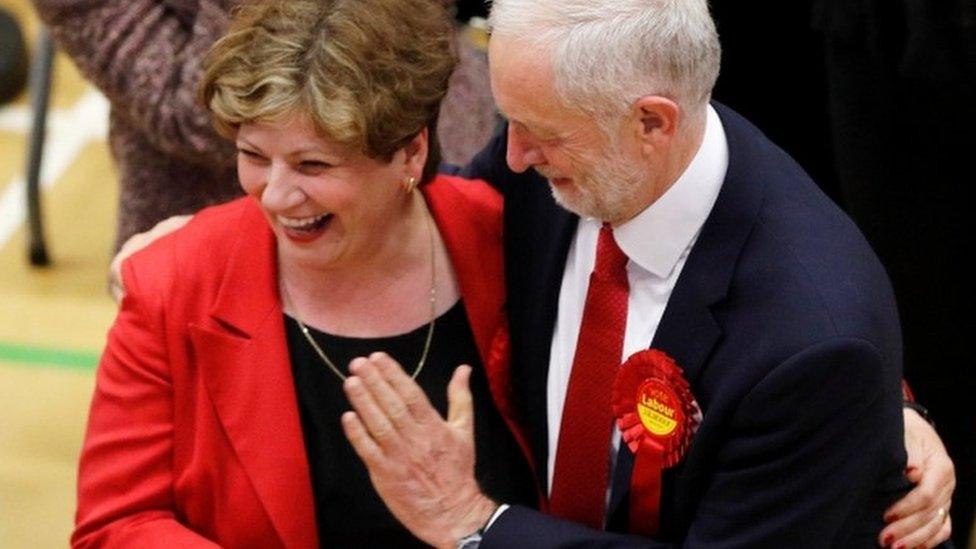Election 2017: What you want to know about the result
- Published
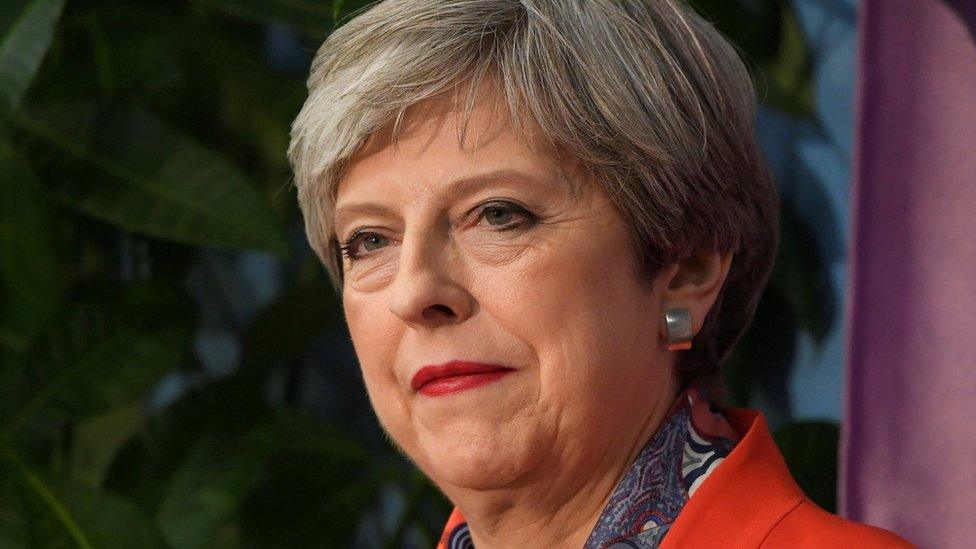
As the Conservative Party loses its overall majority in the general election, the outcome has prompted many questions to be asked about the vote itself and what happens next.
From a possible power block created between the Conservatives and the DUP, to fears of another election or even a bad Brexit deal, voters want to know what the future holds and what sort of government the UK will get in the end. Here, we tackle some of the questions being raised by BBC audiences.
Can the DUP demand key posts within the cabinet?
Theresa May has already started her cabinet reshuffle and the main ministers to stay in place include Brexit Secretary David Davis, Home Secretary Amber Rudd, Chancellor Philip Hammond, Foreign Secretary Boris Johnson, and Defence Secretary Sir Michael Fallon.
To win the DUP's support the prime minister will undoubtedly have to make some concessions but it remains to be seen if this will include cabinet appointments for any of its 10 members.
It is mostly likely that deals will be around securing additional funding for Northern Ireland and extended powers for its Executive if it can be reconstituted.
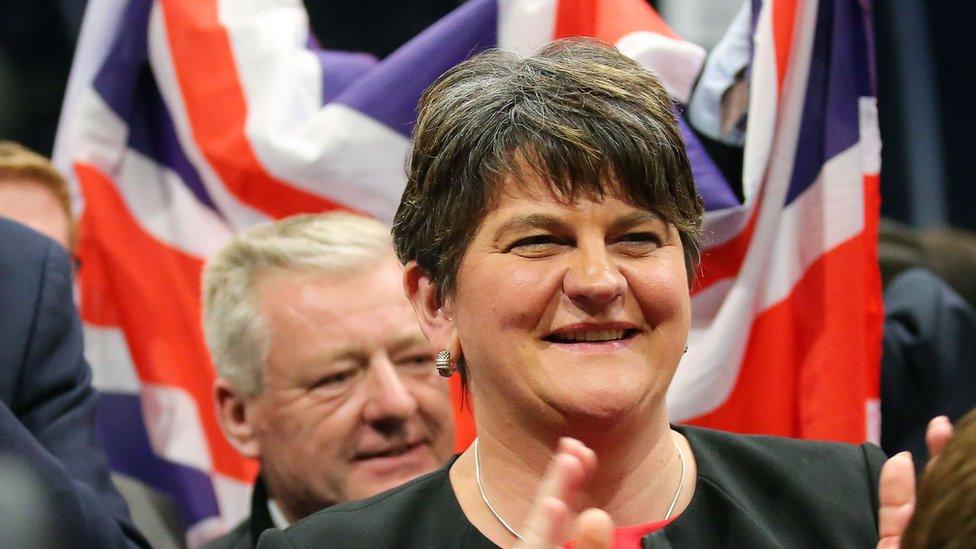
DUP leader Arlene Foster will negotiate a deal over her party's support for the Conservatives with Theresa May
Will Jeremy Corbyn be prime minister if Theresa May resigns?
Theresa May has vowed to form a successful government although there is some speculation that her tenure at No 10 might be limited.
If she were to resign then it would be for the Conservative Party to chose a new leader who would then become prime minister. This is what happened when David Cameron resigned after the EU Referendum last year.
The Conservatives won the largest number of seats at the 2017 general election, but if its minority government proves ineffective and another poll is called Jeremy Corbyn could lead Labour to victory.
Why doesn't the party with the most votes automatically become the governing party? Why do they have to reach 326 seats?
There are 650 MPs elected to the House of Commons and for a party to turn its policies into law, it technically needs the support of 50% of them plus one seat, which is 326.
If a party has 326 MPs or more it will be able to form a majority government, external and secure sufficient backing to ensure it can pass legislation. If it has fewer than 326 MPs it will always need to rely on the support of others - either from other parties or Independents - in order to implement its decisions.
So the party which forms the government must be able to guarantee that it can push its agenda forward and be effective in its leadership of the country.
Could there be a government like in Switzerland where the four major parties rule together?
The political system in Switzerland is very different to that in the UK and is unusual because it has a collective head of state - the seven-member Federal Council - which is also the country's cabinet.
The council was set up by the constitution of 1848 which is still in force today.
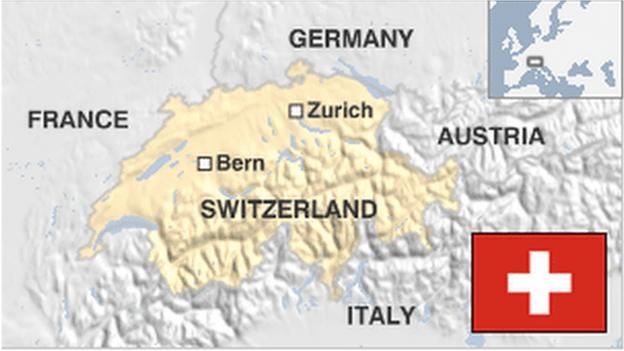
Members are elected for four-year terms by a joint session of both houses of parliament, although in practice changes in membership are rare, making the Federal Council one of the world's most stable governments.
Each year a different member of the council fills the largely ceremonial post of federal president on a rotating basis. However, the office does not confer the status of head of state, which is held jointly by all the councillors.
In the UK the House of Commons is the democratically-elected chamber and a government needs to have at least 326 MPs (which is just more than half the total number) in order to pass its legislation.
To create a government like the one in Switzerland the UK would have to completely restructure its political systems. Even it it was acceptable to voters it would take years to put in place.
Why don't we have a written constitution?
Although people refer to the "constitution", in the UK it does not exist in the traditional form with a single document outlining a constitutional charter. However, most other modern states in the world do have one of these.
Instead the UK's unwritten constitution has evolved over the centuries, external from an amalgamation of Acts of Parliament, court rulings that lay down precedents for future decisions and accepted conventions.
Two of its historic building blocks are the 1689 Bill of Rights which established the supremacy of Parliament over the Crown and Magna Carta of 1215.
The prospect of creating a written constitution continues to be considered and in 2015 the Parliamentary Political and Constitutional Reform Committee, which had consulted on the matter, concluded, external: "While there was broad general support for a written constitution, we recognise that there are strong views expressed against codifying our existing constitution, or at least codifying it in its current form."
The committee published a draft summary of the UK's constitution along with together with some options for reform, external and encouraged further work on the project.
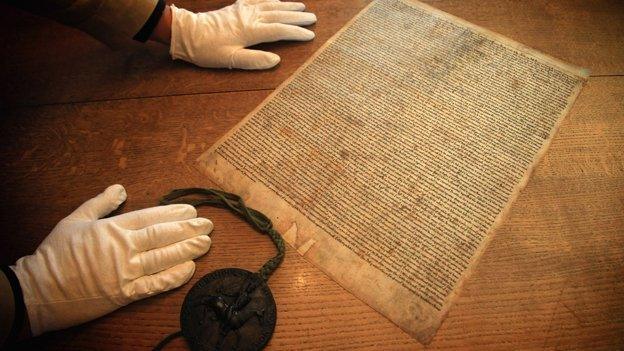
A facsimile copy of the 1215 document, Magna Carta, in the library at Salisbury Cathedral
Why can't the Conservatives and Labour work together to run our country?
Numbers-wise, both parties could join to form a working majority that could vote legislation through. However, the biggest problem could be agreeing on policies in the first place. You can see from their manifesto pledges that there may be more issues that divide them rather than unite them.
While both main parties have ruled out a second referendum on Brexit, Labour have not been explicit about many of their aims on the issue.
The parties differ enormously on the future funding of the NHS, taxation and social care - to list only a few important areas where reaching a consensus could prove more of an issue than simply having a big enough cohort of MPs.
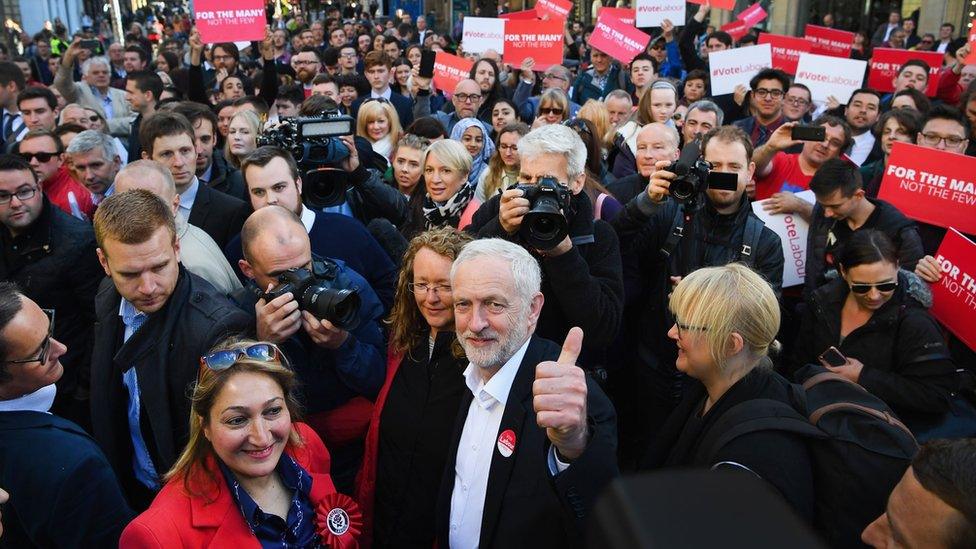
Could there be another election?
It is possible to have another election but as Theresa May has learned, forcing the public into another round of voting is not always a good idea.
Voter fatigue could set in as the electorate may feel it cannot face going through a fourth UK-wide vote (including the EU referendum) in three years. Another vote could backfire with a drop in turnout.
However, the prime minister has said she will not resign and will find a way to form a minority government, indicating the Conservatives will seek the support of the Democratic Unionist Party (DUP).
Under the Fixed-term Parliaments Act 2011,, external general elections take place on the first Thursday in May every five years but there are some ways in which another election could be called.
First, it could happen if two-thirds of MPs back a motion calling for an early election. It's two-thirds of all the seats in the House of Commons - not only those who vote - and it includes vacant seats. With 650 seats, that means 434 MPs must back an early election. This would be the quickest way.
Alternatively, an election could come about if a motion of no confidence in the government is passed in the House of Commons and no motion expressing confidence in the government is subsequently passed within 14 days - the wording of these motions has to be precisely as set out by the Act.
How will a hung Parliament affect Brexit?
The single reason Mrs May said she called the election was to strengthen her position in negotiating a good Brexit deal. It is inevitable now that with a reduced majority she will have to compromise her aims in order to get support from the other parties.
In particular the DUP - with whom Mrs May has said she will work - could be very influential here.
Time is of the essence though, as negotiations with the remaining European Union (EU) countries is due to start on 19 June.
The new government and its partners will have to work hard to agree a strategy, although the EU's budget commissioner, Gunther Oettinger, tweeted that the UK is now a weaker negotiating partner, external than prior to the election and questioned whether the Brexit negotiations could start on schedule.
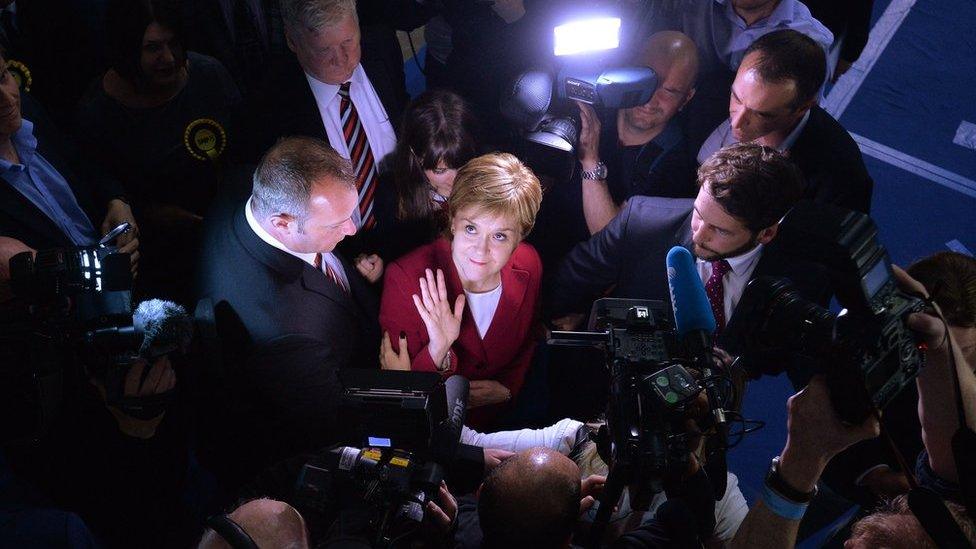
What is The Queen's Speech and how can you be 'defeated' on it?
The Queen's Speech is the address that the Queen reads out on the occasion of the State Opening of Parliament, external in front of MPs and peers.
It is written by the government and outlines the programme of legislation that it wants to pass in the forthcoming Parliamentary year.
It is an event filled with pageantry dating back many centuries and generally happens at the start of each Parliamentary session - although in 2011 the Conservative-Lib Dem coalition government decided against having one.
After the pomp and ceremony of the occasion, the Queen returns to Buckingham Palace and MPs move to the House of Commons to debate the speech. This can last a number of days.
While the vote at the end is generally symbolic, it is possible that someone could take the opportunity to voice their opposition to its contents by voting against it.
With a minority government therefore it is feasible that Mrs May's proposals could be rejected before they pass the first hurdle.
Members of the House of Lords also debate the Queen's Speech but do not vote on it.
By Annie Flury, UGC and Social News
- Published9 June 2017
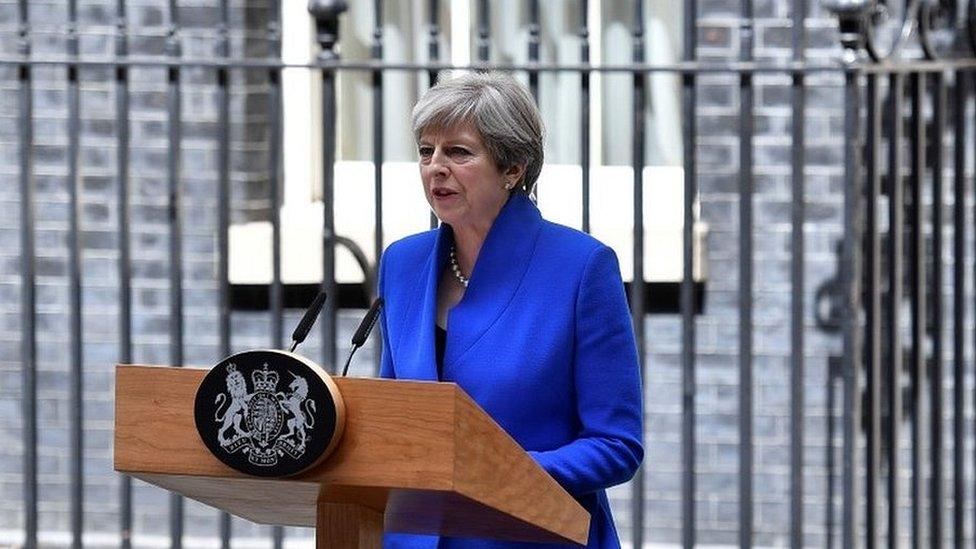
- Published9 June 2017
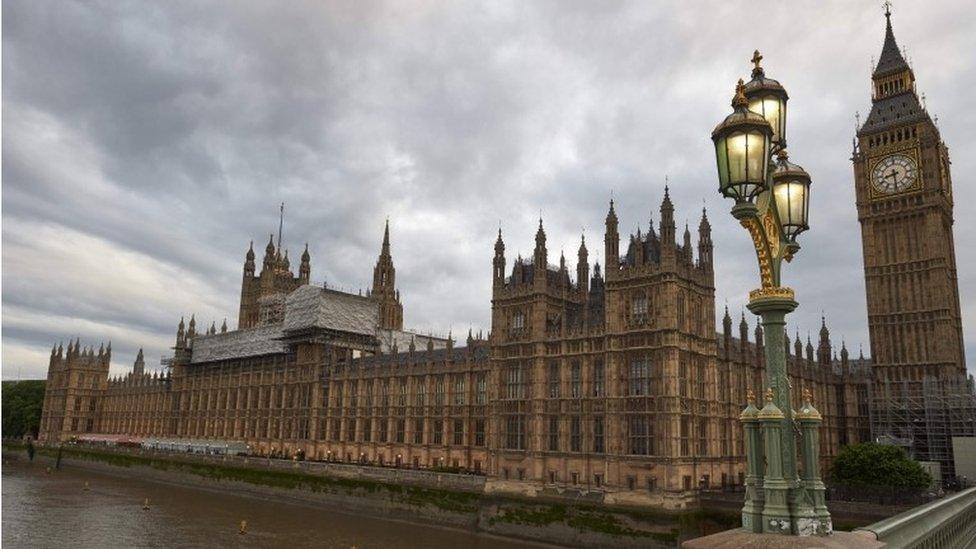
- Published9 June 2017
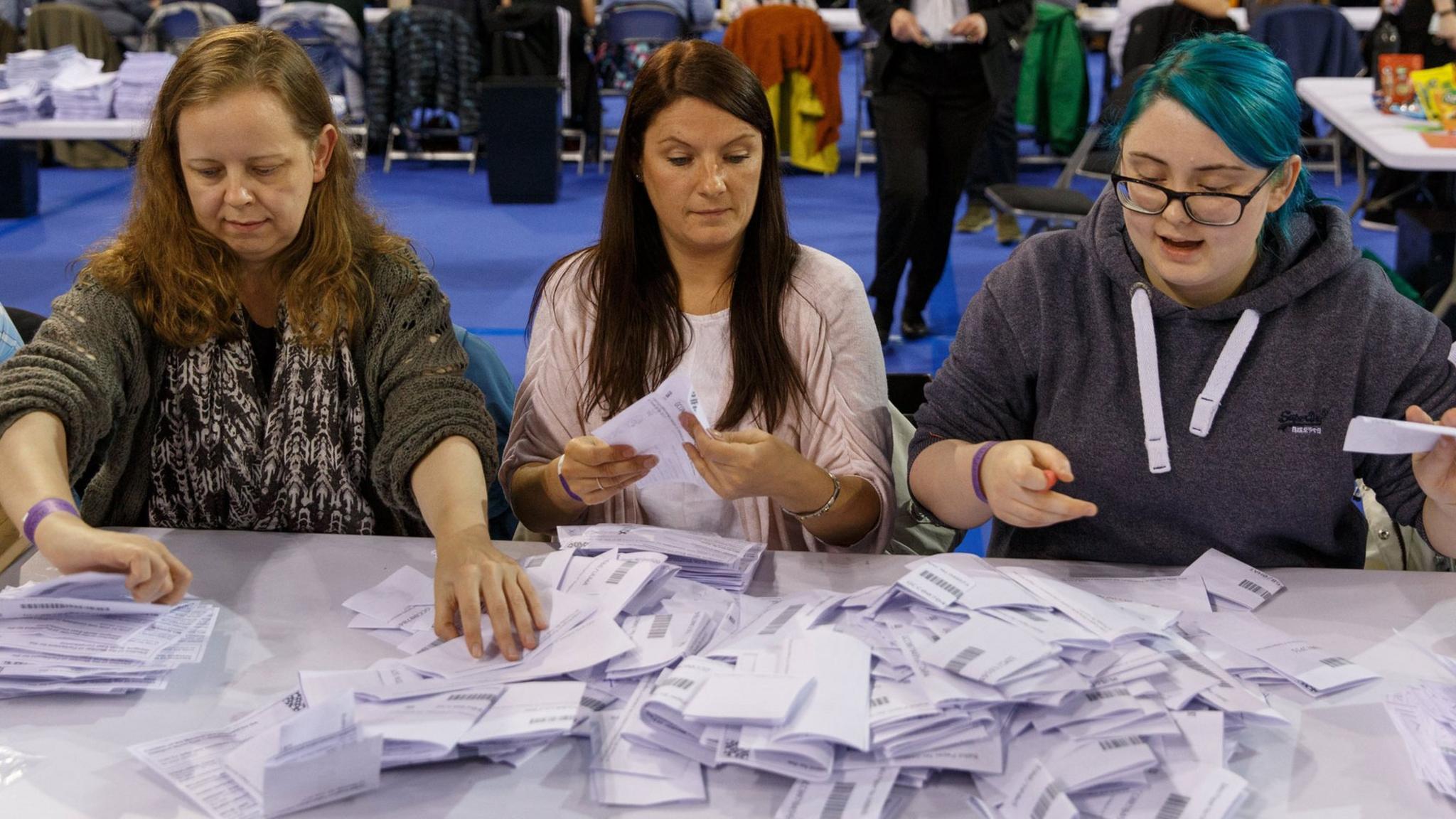
- Published9 June 2017
